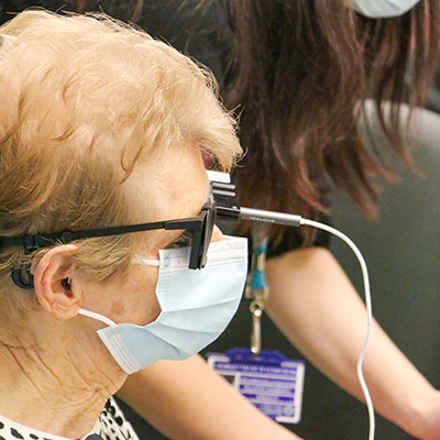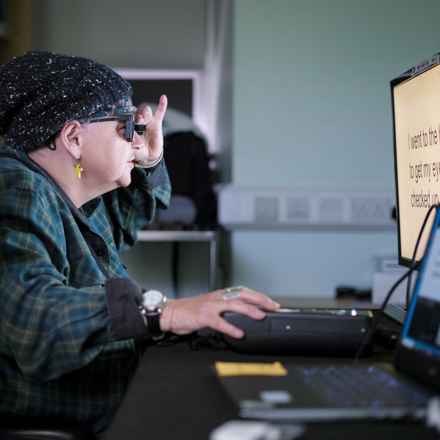
Research news
The latest developments in the search for better treatments and a cure for macular disease.
Latest news

How can research into ageing lead to new AMD treatments?
Posted: Wednesday 4 February 2026
Professor Lynne Cox, a biochemist at the University of Oxford, shares how new insights into cell ageing can help us to better understand and treat age-related macular degeneration (AMD).

Revolutionary implant for dry AMD - your questions answered
Posted: Thursday 27 November 2025
News broke last month of the positive results from a revolutionary new implant which has enabled people with dry age-related macular degeneration to read letters and numbers again.

“We’re all hoping research can fix this, aren’t we?”
Posted: Tuesday 18 November 2025
Gill knew what macular degeneration was as it was something her mum had and she had been taking her to regular eye appointments for many years. But, when the optician said she had it in her own eyes, she didn’t take much notice, because it wasn’t affecting her vision.

Q&A - your questions answered on the PRIMA System clinical trial for dry AMD
Posted: Monday 20 October 2025
All you need to know following the published results of Science Corporation's clinical trial to treat patients with late-stage dry age-related macular degeneration (AMD).

Revolutionary implant allows patients with dry AMD to read again
Posted: Monday 20 October 2025
A revolutionary new implant has restored some vision to patients with dry age-related macular degeneration (AMD), enabling them to read words and numbers, boosting hopes of a breakthrough treatment.

Researchers warn of urgent need for national eye and hearing screening
Posted: Friday 10 October 2025
A groundbreaking study has revealed worrying rates of undiagnosed vision and hearing problems among older adults in the UK, raising urgent concerns about preventable sensory loss.
Explore our research
Beating macular disease through funding medical research and improving the lives of those living with macular disease.
Get involved in research
Patients have a very important part to play in medical research. Without them we would not have the treatments we have today and new and improved treatments would not be possible.
Get the latest research news from the Macular Society
To hear about life-changing research and treatments, subscribe to our monthly enewsletter today. Together we can Beat Macular Disease.
Sign up to our free email newsletter




